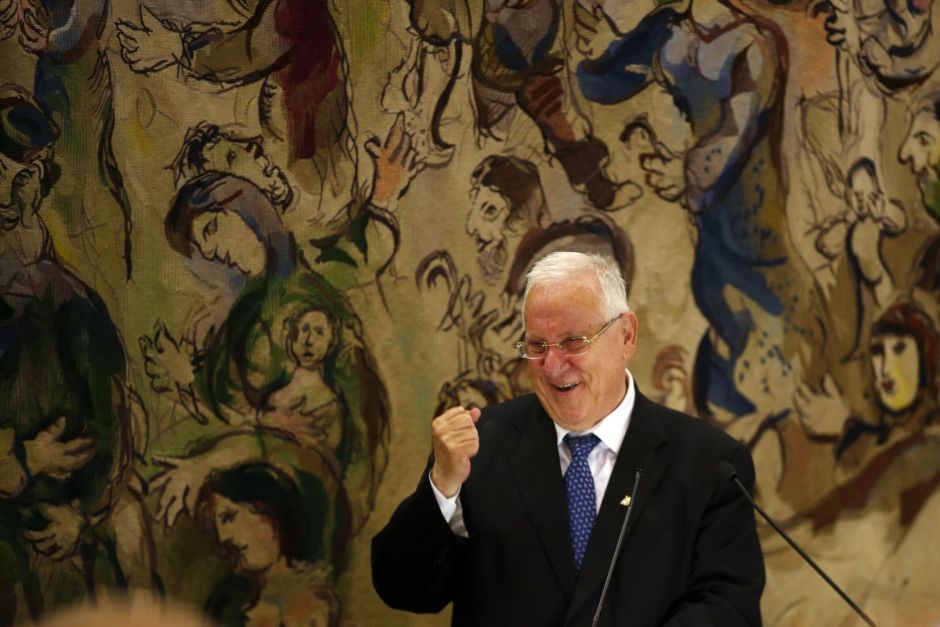A recent comment about racism in Israel by Israel’s president, Reuven Rivlin, transported me back in time.
It was 1971, I had just arrived in Israel for an extended visit, and my aunt in Haifa had invited me for dinner. As we feasted on Polish and Israeli delicacies, she gave me some unsolicited advice.
More than 40 years on, I remember well her admonition.
First, she advised me to avoid “schwarztze” women. “Stick to your own kind,” she said in Yiddish. Avoid Sephardic women. Her second piece of advice was just as emphatic. Beware of Arabs. They may do you harm, she warned.
Frankly, I was shocked by my aunt’s ethnocentric remarks. Here was a Holocaust survivor, a victim of racism, who was coming across loud and clear as a bigot.
So when Rivlin recently spoke of the epidemic of anti-Arab racism in Israel, I remembered my aunt, who in every other respect was a kind and decent person.
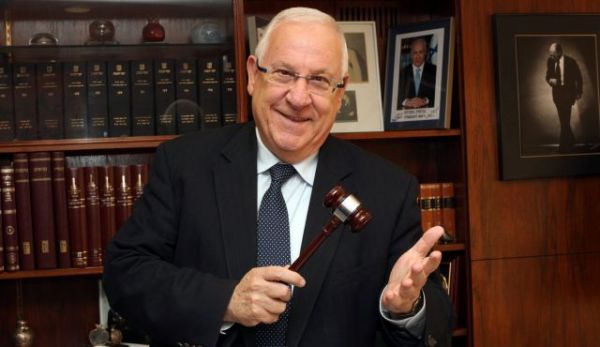
Rivlin, who has been a vocal critic of racial discrimination in contemporary Israeli society, told academics late last month that “the tension between Jews and Arabs (in Israel) has risen to record heights …”
Rivlin’s predecessor, Shimon Peres, issued a similar crie de coeur before he resigned. Two years ago, in a speech to teachers, he said that racist incidents were on the rise in Israel. Citing an example, he referred to a survey in which the majority of Jewish students said they would not want to live next to an Israeli Arab.
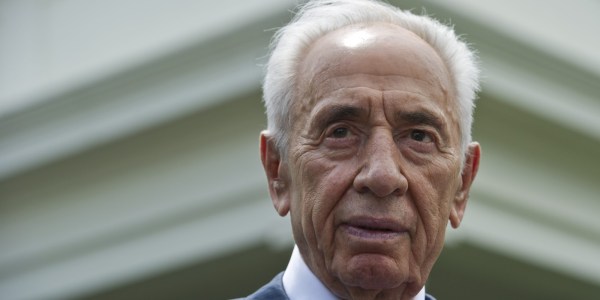
It’s a sad but quantifiable fact that racism permeates Israel. I’m not suggesting that racism is unique to Israel. Racism lurks in all nations, including those in the Arab and Muslim worlds. Nonetheless, the prevalence of racism in Israel tugs at my conscience.
As Dan Margalit, a former member of Knesset, put it: “Racism is one of the worst attitudes and crimes you can think of. We were persecuted and killed by racists for generations, so to think that there would be racism in our country is horrendous.”
Margalit was not speaking out of turn.
Judging by the results of a survey published by Israel Hayom last March, 95 percent of Israelis believe that racism is a problem in Israel. Asked which Israelis are usually the objects of racism, 79 percent of respondents pointed to Ethiopian Jews, while 68 percent mentioned Israeli Arabs.
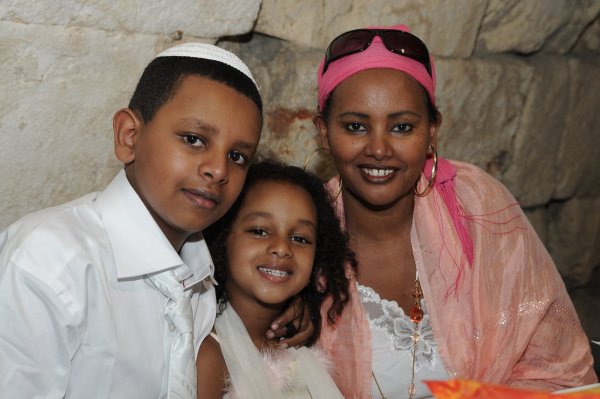
Historically, racism in Israel most often affects Israeli Arabs, who comprise about 20 percent of Israel’s population. According to a survey published by Haaretz two years ago, a significant proportion of Israeli Jews hold anti-Arab views. Forty two percent said it would bother them to have an Arab neighbor. Fifty nine percent said that Jews should have preference over Arabs for government jobs. Forty two percent said they would object to sending their children to a class with Arab students.
The survey found that ultra-Orthodox Jews and religious Israeli Jews were by far the most racist in their attitudes.
Although Israeli Arabs have been the chief victims of racism since the establishment of the state in 1948, the phenomenon has trickled down to Ethiopians, who began arriving in Israel en masse some 30 years ago. Early in 2012, 5,000 Ethiopian Jewish protesters blocked a major road in Jerusalem in a march against racism.
Racism, Israeli style, spills into virtually every nook and cranny.
Last May, Oded Tira, the chairman of the National Council for Sport, used a racist slur, kushim, while congratulating Maccabi Tel Aviv for its victory over Real Madrid in a basketball championship. “Congratulations on the achievement, although some people were unhappy that Maccabi played with five kushim throughout much of the game,” Tira said.
Tira apologized for his politically incorrect comment, saying he had not meant to offend anyone. “I do not judge people based on the color of their skin,” he said.
Tira’s casual slur may well be emblematic of the rising spirit of ethnocentrism and intolerance in Israel.
“A wave of racism is threatening to pull Israeli society into dark and dangerous places,” said Ehud Barak in 2011 while serving as defence minister.
Four years ago, Rabbi Gilad Kariv, the head of the Reform Judaism movement in Israel, warned, “Israeli society is falling into a deep, dark pit of racism and xenophobia.”
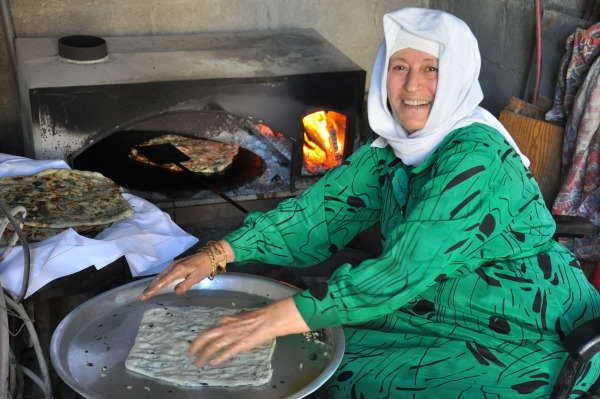
Anti-Arab racism is a worrisome problem in Israel. A few years ago, the Orr Commission released its report on the riots that broke out in Israeli Arab towns following the eruption of the second Palestinian uprising in September 2000. “Government handling of the Arab sector has been primarily neglectful and discriminatory,” the report concluded.
Discrimination against Israeli Arabs, who are equal citizens under the law, cuts across the board.
The Israeli Bar Association has reported that Arabs receive longer prison sentences than Jews. Ono Academic College has said that Israeli employers shy away from hiring Arabs, as well as haredim and the disabled. Channel 10 broadcast a report that Bank Hapoalim employees refused to permit Arab customers to transfer their bank accounts to branches in Jewish neighborhoods.
Last year, Prime Minister Benjamin Netanyahu condemned as “shameful” demonstrations by Betar Jerusalem soccer fans over their team’s decision to hire two Muslim players. “We cannot accept such racist behavior,” he declared. “The Jewish people, who suffered excommunications and expulsions, need to represent a light onto the nations.”
Rabbis, who should be role models of enlightenment, have sometimes been exemplars of the darkest Israeli currents. Several years ago, Israeli newspapers ran stories about two Orthodox rabbis who had openly voiced anti-Arab views.
The chief rabbi of Safed, Shmuel Eliyahu, the son of the former chief Sephardic rabbi, Mordechai Eliyahu, signed a petition in 2010 urging Jewish landlords to refrain from renting or selling apartments to non-Jews. As a result, the Israeli attorney-general opened a criminal investigation against him.
The chief rabbi of the West Bank settlement of Kiryat Arba, Dov Lior, was questioned by police after he endorsed a book, Torat Hamelech, which justifies the killing of non-Jews.
Israel is a liberal democratic state in a sea of Arab autocracies, one of the few genuine democracies in the Middle East. But its glaring imperfections cast a long shadow on some of its citizens, particularly the Arab minority.
Many Israelis, the sons and daughters of Holocaust survivors, abhor racism. Nevertheless, as President Rivlin would probably agree, racism is a corrosive, corruptive and disgraceful phenomenon that scars the face and soul of Israel.
This piece appeared in the Times of Israel.
